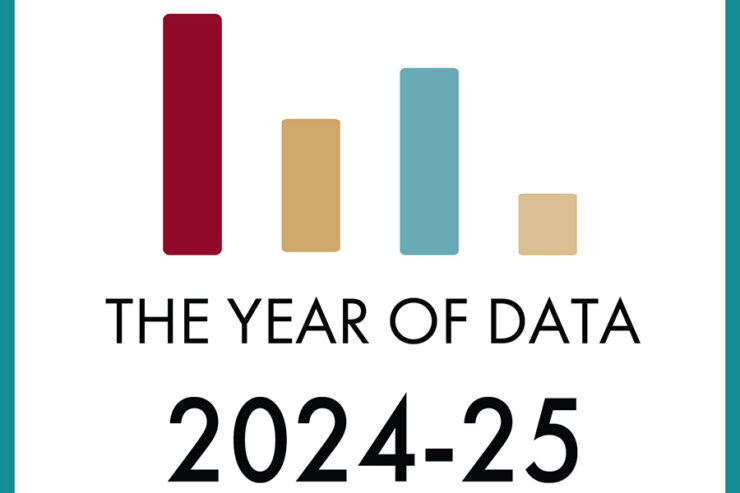Recently, Provost and Chief Academic Officer Norma Bouchard and Vice President and Chief Information Officer Helen Norris introduced an exciting new initiative, The Year of Data
The Year of Data aims to infuse the professional community at Chapman with an appreciation for data as a valuable resource that can enhance the quality of education, research and administration, enable evidence-based decision-making, foster innovation and collaboration, and improve the efficiency and effectiveness of the university’s operations and services. By increasing awareness and utilization of the data and data tools available within Chapman’s Information Systems and Technology (IS&T) and Institutional Research and Decision Support (IRADS) and showcasing existing reports, data access channels, data use policies and analytical resources, the university hopes to cultivate a deeper data-centric culture on campus and to empower all faculty, staff and administrators to be data-driven or data-informed decision-makers.
Data at Chapman
As we embark on this educational journey about data, data uses and data tools, it’s essential to start with a fundamental understanding of what data means for Chapman.
The university collects and maintains various types of institutional data encompassing admission decisions, student demographics, class enrollment, academic courses, workforce information, finances, financial aid, alumni engagement and survey responses, all housed within multiple systems. Recognizing this data as a valuable institutional asset mandates responsible collection, storage, management and dissemination while honoring individual privacy and adhering to pertinent regulations and policies.
Data Literacy
A key component of the Year of Data is strengthening data literacy throughout the Chapman community. Data literacy is the ability to read, understand, create and communicate data as information. It involves skills such as data collection, analysis, interpretation, visualization and presentation. Bolstered data literacy will enable individuals to make informed decisions based on evidence and facts rather than intuition or assumptions. Data literacy also fosters a culture of curiosity, inquiry and critical thinking that can enhance learning and innovation.
The Year of Data will also be a year of demystifying data at Chapman. If you’ve ever grappled with locating relevant data for informed strategic planning or decision-making, wondered about exploring different campus data sources, tried to make sense of data in the Institutional DataMart or Panther Analytics, or desired a go-to glossary for terms found in reports, the upcoming year promises some clarity on these subjects.
This year, expect to see data-related articles and plan to engage in sponsored events, including workshops, informal brown-bag sessions and lunch-and-learns. Stay tuned for a special Year of Data Working@Chapman edition in October, which will feature skills-based and informational articles, such as What is Census Data?, How to Request Data, Data Resources and more!
Please visit the Data@Chapman website to keep up to date on our evolving data landscape and additional data resources.



